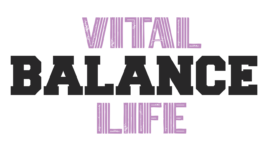The National Disability Insurance Scheme (NDIS) provides support for people with disabilities to achieve their goals and improve their quality of life. One of the many supports available under the NDIS is exercise physiology, which can help individuals with varying abilities improve their physical and mental health. In this blog post, we will explore how NDIS exercise physiology works and the benefits it can offer for individuals with low vision and blind, autism spectrum, and deaf and hard of hearing.
How NDIS Exercise Physiology Works
NDIS exercise physiology involves creating customized exercise programs that are tailored to the individual’s specific needs and goals. This may include:
- Customized Exercise Programs: NDIS exercise physiology is all about creating customized exercise programs that are tailored to an individual’s specific needs and goals. Unlike generic workout plans, exercise physiologists work with their clients to determine what exercises will be most effective in improving their overall health and well-being.
- Assessment of Physical Abilities: Before starting any exercise program, it’s important to understand an individual’s physical abilities and limitations. This is especially important for individuals with disabilities who may have unique challenges when it comes to physical activity. An exercise physiologist will assess an individual’s physical abilities to determine what exercises will be most beneficial for them.
- Setting Achievable Goals: Exercise physiologists work with their clients to set realistic goals that align with their abilities and preferences. This helps to ensure that individuals are motivated and engaged in their exercise program, ultimately leading to better results.
- Improving Health and Well-being: The ultimate goal of NDIS physiology is to improve an individual’s health and well-being through physical activity. Exercise has been shown to have numerous health benefits, such as reducing the risk of chronic diseases, improving mental health, and increasing the overall quality of life.
- Accessibility for All Abilities: It is designed to be accessible for individuals with varying abilities. Exercise physiologists can modify exercises and provide adaptations to ensure that everyone can participate in physical activity. This makes it a great option for individuals with low vision and blindness, autism spectrum, and deaf and hard of hearing.
Benefits of NDIS Exercise Physiology
-
Individuals with Low Vision and Blind
Exercise can be challenging for individuals with low vision and blind, but with the help of an exercise physiologist, it can be made accessible and safe. Exercise can help improve balance, and mobility, and reduce the risk of falls, which is especially important for individuals with low vision and blind. It can also increase independence and confidence, as individuals become more comfortable with their physical abilities.
-
Individuals with Autism Spectrum
Exercise can be an effective way to reduce anxiety and improve social skills for individuals with autism spectrum. Exercise has been shown to increase attention span and improve overall behaviour and emotional regulation. The customized exercise programs offered through NDIS exercise physiology can be tailored to the individual’s specific needs and preferences, making it a comfortable and enjoyable experience.
-
Individuals who are Deaf and Hard of Hearing
Communication can be a barrier for individuals who are deaf and hard of hearing, but NDIS physiology can provide customized communication strategies for instruction. The exercise physiologist can work with the individual to determine the best way to communicate during the session, whether it be through sign language or written instructions. Exercise can also improve overall health and well-being for individuals who are deaf and hard of hearing, just as it can for anyone else.
Conclusion
NDIS exercise physiology is a valuable support for individuals with disabilities who are looking to improve their health and well-being. By creating customized exercise programs, exercise physiologists can help individuals with low vision and blind, autism spectrum, and deaf and hard of hearing safely and effectively improve their physical and mental health. It is important for individuals with disabilities to have access to these supports to help them achieve their goals and live their best life.



